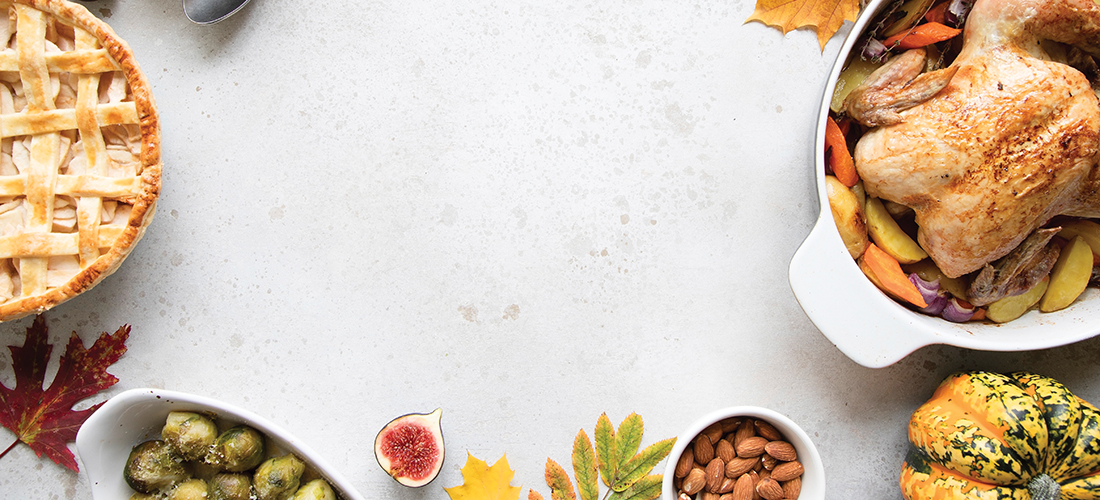
Hungry No More
Wouldn’t it be pretty to think so?
By Deborah Salomon
Thanksgiving wears many faces: the college freshman’s first time home. The soldier deployed away from home. The traveler stranded by weather on the way home. The waiter serving “homestyle” mashed potatoes with “Grandma’s” giblet gravy.
Oenophiles pairing Beaujolais nouveau with turkey. Homeless men eating processed turkey and canned green beans, gratefully, in a church hall. Xenophobes insisting that only born-in-the-USA Americans are entitled to celebrate a holiday based, ironically, on natives helping immigrants.
Mustn’t forget pumpkin pie, football and early-bird Black Friday bargains.
Putting aside commercial elements and recent traditions, Thanksgiving is about addressing hunger. Fifty percent of the Plymouth colonists died during the first year, many from illnesses exacerbated by a poor diet, since not enough food was grown and put by for the harsh Massachusetts winter.
Perhaps the only thing worse than starving is starving sick, in the cold.
Americans hear a lot about starvation. During World War II children were cajoled to clean their plates using the specter of “starving children in Europe.” Then, the babies of Bangladesh with swollen bellies and sunken cheeks. I have heard a 40-day hunger strike survivor describe the symptoms: headache, cramps, delusions.
Men, women and children suffer these symptoms every day, not just in the hurricane-ravaged Bahamas or famine-ridden African nations. They exist in the Appalachians and inner-city ghettos. A few stand outside Walmart and Harris Teeter in Aberdeen, holding signs that say “I’m hungry.”
Why? There’s no food shortage in the United States, no famine. Just the opposite. Despite flooding and global warming there’s still a glut. Yet prices keep rising, in part because Americans are spoiled rotten. Not enough white meat on your bosomy Butterball? Roast a separate breast in the same pan. Brussels sprouts must be baby and cranberries fashioned into chutney. Choose from a hundred flavors/varieties of yogurt, as well as milk from cows and half a dozen plant sources. Apples fly halfway around the world on first class tickets, the price suggests. Vegetarians want “impossible burgers” with a meat mouthfeel. Food has become fashion, which means the industry caters to those who can afford indulgence, pay almost $5 for a loaf of sliced bread, rather than finding ways to distribute basics at low prices — or free.
You’ve heard of inner-city “food deserts” where no supermarkets exist, forcing those without transportation to pay exorbitant prices for canned goods at corner stores — and no fresh produce or meats at all. What’s the good of food stamps without a place to buy food? Shame, shame in a nation with surpluses. Shame on the public school that recently gave a 9-year-old an “alternate lunch” because his account was a few dollars overdue. Shame on food producers who spend (and often lose) hundreds of millions diversifying mayonnaise into 10 flavors.
The United States needs many things: One of them is not an entire supermarket aisle devoted to breakfast cereals, another to soft drinks.
Local initiatives like food shelves and BackPack Pals soldier on. I’m wanting something grander. C’mon, Heinz. Let’s go, Nabisco, Coke, Kraft and Kellogg’s. Donate, without fanfare, year-round free meal programs to economically depressed areas. You could even use up all those ridiculous products that bomb.
Imagine how many hungry folks could be fed for the price of a 30-second Super Bowl commercial.
Here come the letters: “You oversimplify. It’s much more complicated.” No it’s not. Putting a man on the moon 50 years ago was complicated. Feeding the hungry couldn’t be simpler.
Thanksgiving, originally an October harvest festival, has evolved as a food/family event best portrayed by Norman Rockwell in his iconic painting which, don’t forget, was titled Freedom from Want, not Happy Thanksgiving — part of a series illustrating the Four Freedoms proclaimed by FDR in 1941. I have ridden a turkeymobile delivering holiday groceries to low-income families. I have attended Oxfam “hunger banquets” and many Thanksgiving dinner adaptations, including one where a historical museum recreated, as far as possible, the first: a tough, gamey wild turkey cooked outdoors over a spit, accompanied by corn bread and winter squash baked in the coals with maple-sweetened apples. The food was awful but spirits remained strong.
I have also carried this crusade from job to job: fewer permutations, more basic foods easily accessible and at lower prices so everyone, every day, not just on Thanksgiving, can celebrate Freedom From Want as did Pilgrim immigrants and Wampanoag natives on that autumn afternoon in Massachusetts, in 1621.
That, indeed, would be a reason to give thanks. PS
Deborah Salomon is a staff writer for PineStraw and The Pilot. She may be reached at debsalomon@nc.rr.com.





